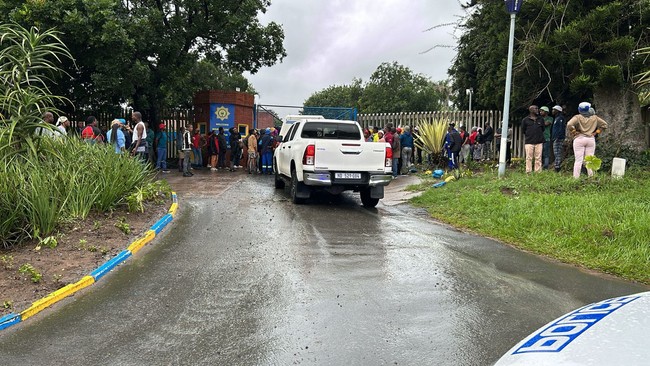Marietjie Brown, Sustainability and Government Affairs Lead at CHEP IMETA (India, Middle East, Türkiye, Africa)
South Africa is on the cusp of a reinvigorated era for its biodiversity sector, as industry players contemplate how to make the sector both inclusive and equitable for rural and previously disadvantaged communities.
The country ranks as the third most biodiverse country in the world, renowned for its diverse range of biomes, from forests and deserts to estuaries and marine systems. Yet it also remains among the top 15 largest emitters of carbon dioxide (CO2) worldwide and is responsible for more than one-third of CO2 emissions on the African continent.
Equally so, while the African continent is home to some of the world’s most biodiverse regions, it is also under ever increasing pressure, with ongoing losses of species and habitat necessitating a harmonisation in local and regional approaches to safeguard biodiversity and promote environmental stewardship.
In March, South Africa hosted its inaugural Biodiversity Economy and Investment Indaba, which brought together sector role players to broaden participation in the biodiversity space. What was heavily underscored was the importance and value of communities in driving not only conservation efforts but also advocating for the sustainable use of nature and a diverse biodiversity-based economy.
This was presented against the backdrop of the new National Biodiversity Economy Strategy, currently out for public comment, which marries the conservation of biodiversity with benefits to local communities by promoting the sustainable use of the country’s natural resources. It has become resoundingly clear, that any current or future efforts in addressing biodiversity conservation in the country must place communities at the heart of the matter. This includes educating communities on the importance of environmental stewardship, empowering communities through job creation, and supporting lives and livelihoods through the safeguarding of natural resources such as water.
However, achieving any meaningful progress in this regard will require a collective effort from stakeholders within the sector including –the public sector, private sector, and local communities.
For CHEP, a global leader in supply chain solutions, and its parent company Brambles, pioneering regenerative supply chains means taking nature-positive actions. In practice, this means preserving, restoring, and revitalising natural systems – and doing so with community buy-in, empowerment, and support.
CHEP, in partnership with WWF South Africa has embraced the concept of water stewardship in the uMzimkhulu catchment area which holds the majority of CHEP’s timber plantations. This project aims to safeguard water resources and promote sustainable natural resource management. It assists in securing the Southern Drakensberg Water Source Area, providing for over four million downstream users and KwaZulu-Natal’s (KZN) economic hub. This initiative embodies South Africa’s commitments to sustainable development by transcending conventional corporate-NGO partnerships, by actively working together and emphasising meaningful collaboration to promote water and biodiversity stewardship and improve natural resource management whilst centering on local community needs.
Another initiative by the pallet and equipment pooling solutions company is the Southern Drakensberg Vulture Conservation Project in collaboration with Wildlife ACT, which safeguards endangered vultures in KZN near CHEP Sub-Saharan Africa’s timber farms. Historically, the KZN province has supported healthy breeding populations of the African White-Backed, Lappet-Faced, White-Headed, Cape and Bearded Vultures species. Unfortunately, over the past 20 years each of these species have shown rapid population declines, and the estimated decline projections are dire. The reduction of such important ecosystem role-players will most certainly result in a devastating impact on our environment, human health and economy, with far reaching consequences across South Africa and beyond. The numbers of vultures are dwindling due to poisoning, power line collisions, and illegal trade. The project protects their habitats, responds to poisonings, educates communities, and advocates for better improved law enforcement.
As South Africa charts a new pathway towards sustainable initiatives that address biodiversity conservation, the underlying thread tying together any prospects of success will be just how well integrated the communities are into the delivery of the greater strategy. The initiatives highlighted, such as CHEP’s collaborations with WWF South Africa and Wildlife ACT exemplify a transformative approach to environmental conservation — one that interweaves the preservation of natural resources with the enhancement of community welfare and economic resilience.
#Local #Communities #Heart #South #Africas #Drive #Conserve #Biodiversity



